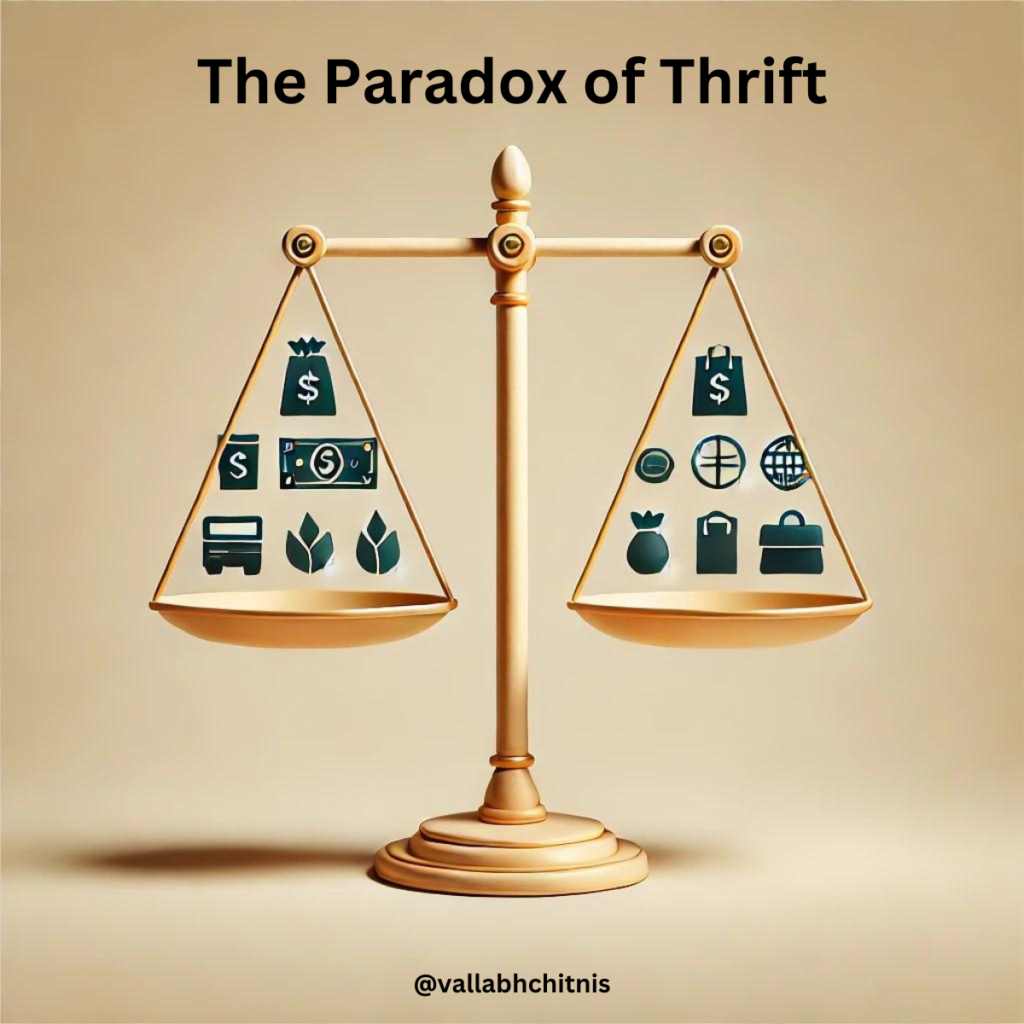Ever wondered how saving money could actually harm the economy? This idea is known as the Paradox of Thrift. It impacts product sales, and it’s essential to understand this paradox from a product management perspective.
The Paradox of Thrift suggests that while saving money is good for individuals, it can hurt the economy if everyone saves more and spends less.
When people save instead of spending, demand for goods and services drops, this leads to slower economic growth and can even cause businesses to cut back or close.
As product managers, understanding the Paradox of Thrift is crucial. Individual actions, like saving money, can collectively lead to reduced economic activity. This paradox impacts product sales, market strategies, and overall economic health.
The Impact of Saving on Product Sales
1. Reduced Consumer Spending
If everyone cuts back on buying new tech gadgets to save money, sales for electronic products drop significantly.
2. Lower Business Revenues
A software company may struggle if consumers decide to save rather than invest in new software solutions.
3. Slower Economic Growth
During the Great Depression, high levels of savings and low spending contributed to prolonged economic hardship.
Are you curious about how to navigate this paradox and maintain product sales even when consumers are inclined to save more?
The Paradox of Thrift: When Saving Hurts the Economy
